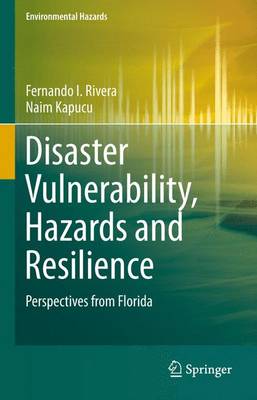Environmental Hazards
1 total work
Disaster Vulnerability, Hazards and Resilience
by Fernando I. Rivera and Naim Kapucu
This monograph provides valuable lessons in building disaster resilience for rural communities and beyond. With a focus on Florida, the authors present a comprehensive review of the current debates surrounding the study of resilience, from federal frameworks, state plans and local initiatives. They also review evaluation tools and feature first-hand accounts of county emergency managers as well as non-profit and community groups on key issues, including perspectives on vulnerable groups such as the elderly, children and farm workers.
Readers will find insightful answers to such questions as: How can the concept of resilience be used as a framework to investigate the conditions that lead to stronger, more sustainable communities? What factors account for the variation across jurisdictions and geographic units in the ability to respond to and recover from a disaster? How does the recovery process impact the social, political and economic institutions of the stricken communities? How do communities, especially rural ones, collaborate with multiple stakeholders (local, regional, state, national) during the transition from recovery to resilience? Can the collaborative nature of disaster recovery help build resilient communities?.
The primary audiences of this book are scholars in emergency and crisis management, planning and policy, disaster response and recovery, disaster sociology and environmental management and policy. This book can also be used as a textbook in graduate and advanced undergraduate programs / courses on disaster management, disaster studies, emergency and crisis management, environmental policy and management and public policy and administration.
